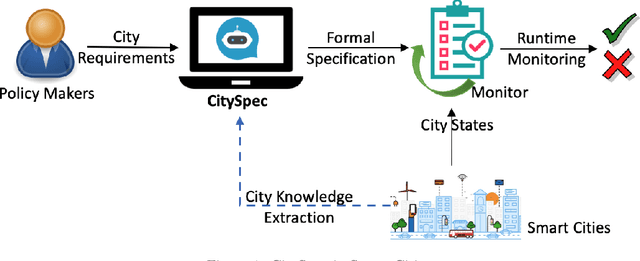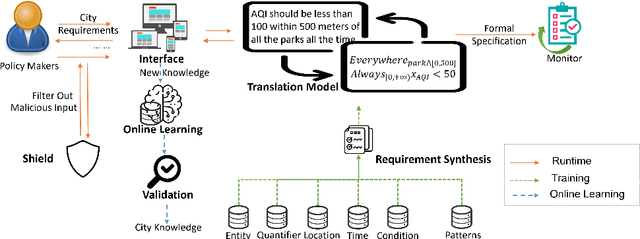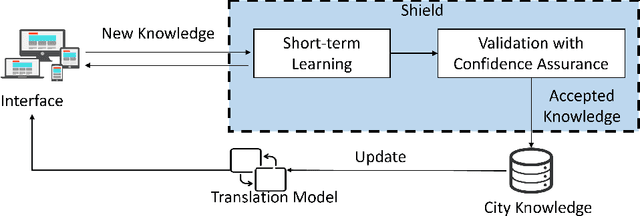CitySpec with Shield: A Secure Intelligent Assistant for Requirement Formalization
Paper and Code
Feb 19, 2023



An increasing number of monitoring systems have been developed in smart cities to ensure that the real-time operations of a city satisfy safety and performance requirements. However, many existing city requirements are written in English with missing, inaccurate, or ambiguous information. There is a high demand for assisting city policymakers in converting human-specified requirements to machine-understandable formal specifications for monitoring systems. To tackle this limitation, we build CitySpec, the first intelligent assistant system for requirement specification in smart cities. To create CitySpec, we first collect over 1,500 real-world city requirements across different domains (e.g., transportation and energy) from over 100 cities and extract city-specific knowledge to generate a dataset of city vocabulary with 3,061 words. We also build a translation model and enhance it through requirement synthesis and develop a novel online learning framework with shielded validation. The evaluation results on real-world city requirements show that CitySpec increases the sentence-level accuracy of requirement specification from 59.02% to 86.64%, and has strong adaptability to a new city and a new domain (e.g., the F1 score for requirements in Seattle increases from 77.6% to 93.75% with online learning). After the enhancement from the shield function, CitySpec is now immune to most known textual adversarial inputs (e.g., the attack success rate of DeepWordBug after the shield function is reduced to 0% from 82.73%). We test the CitySpec with 18 participants from different domains. CitySpec shows its strong usability and adaptability to different domains, and also its robustness to malicious inputs.
 Add to Chrome
Add to Chrome Add to Firefox
Add to Firefox Add to Edge
Add to Edge